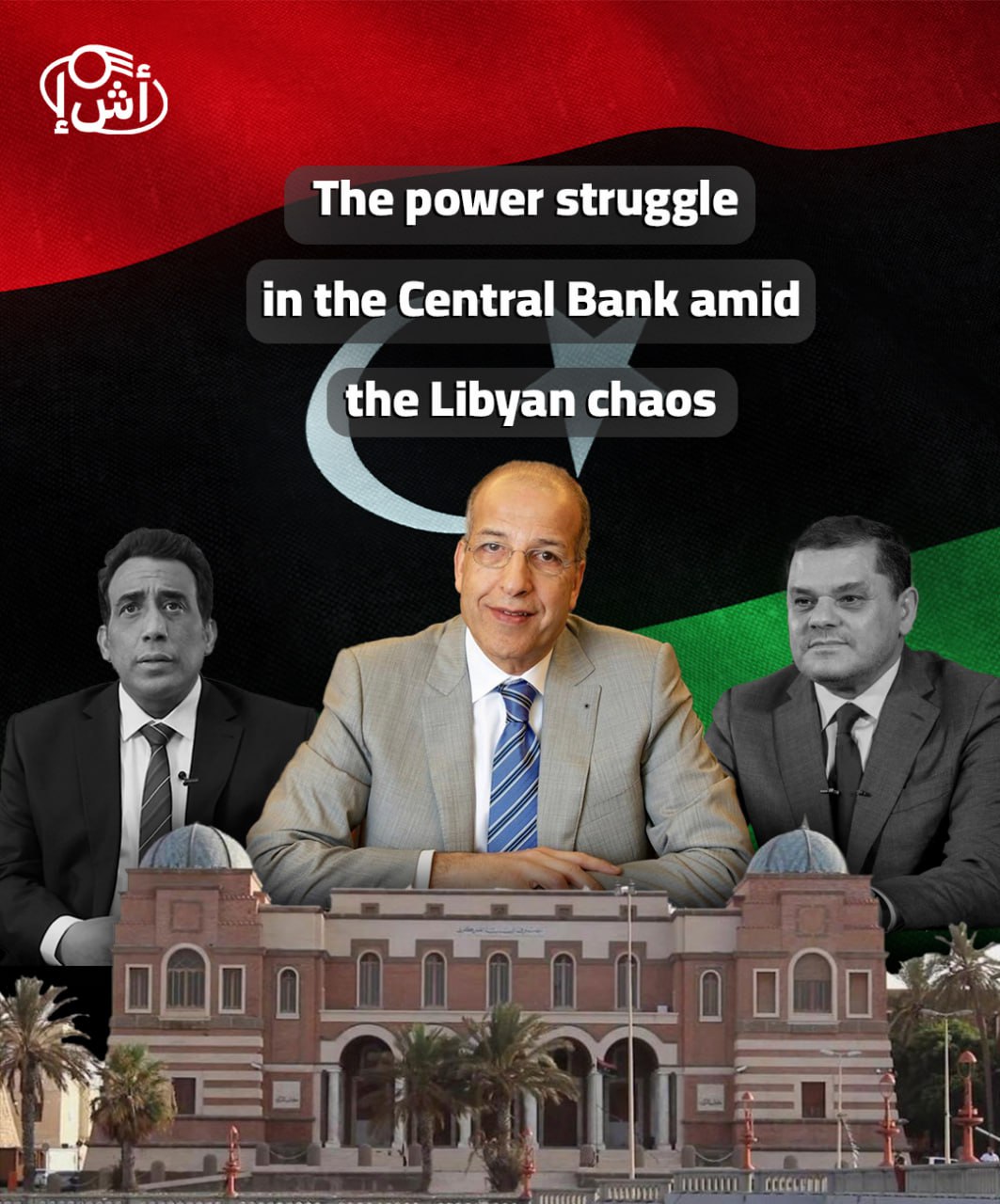Western Libya is witnessing a new chapter of internal conflicts through an attempt to dismiss the governor of the Central Bank of Libya, Al-Siddiq Al-Kabeer, through direct threats that prompted the governor to seek American protection for his position.
In practice, the governor’s disagreements with the head of the government in Tripoli, Abdul Hamid Dbeibeh , are not new, as attempts to overthrow him have been repeated over the past years, and prompted him to travel to Turkey for fear of any consequences resulting from his dismissal, but today it is taking a different direction amid the fragility of the political situation in Tripoli, as this event provides a model for the broader struggle to control Libya’s financial and economic resources, which are essential in the conflicting political environment in western Libya.
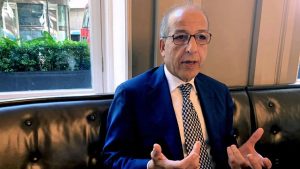
The Power and Influence of Al-Siddiq Al-Kabeer
Since 2011 and after the fall of Muammar Gaddafi’s regime, Al-Siddiq Al-Kabeer has been the governor of the Central Bank of Libya, and this position has made him the most influential figure in the country. He remained the governor of the bank during the most turbulent periods in Libya’s modern history, including two civil wars and the division of the country into competing governments, and his control over Libya’s vast financial resources, including foreign currency reserves and oil revenues, which allowed him to maintain significant influence on the political and economic levels.
Al-Kabeer’s ability to navigate the complex political scene in Libya is evident in his remaining in his position despite multiple attempts to remove him, as accusations of corruption and mismanagement hover around him, and his competitors rely on the deterioration of the Libyan economy and the sharp decline in the value of the dinar during his term. In contrast, he sees his management of the bank as a stabilizing force supported by a network of Western interests. The survival of the Central Bank amid the chaos that swept Libya represents a fundamental image of European and American influence supporting Al-Siddiq Al-Kabeer’s continued rule of the Central Bank.
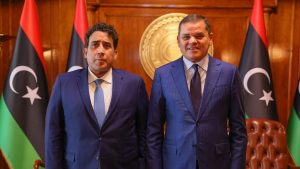
Dbeibeh vs. Al-Kabeer
The latest attempt to dismiss Al-Kabeer is led by Abdul Hamid Dbeibeh, head of the outgoing Government of National Unity, and is joined in this by the head of the Libyan Presidential Council, Mohamed Al-Menfi. Some reports indicate that the Tripoli government, with the support of armed groups, has exerted great pressure on Al-Kabeer, which led to the issuance of a decree by the Presidential Council ordering his dismissal. This step comes amid escalating tensions between Dbeibeh and Al-Kabeer, which resulted from the bank’s refusal to approve some of the financial allocations proposed by the government, with Dbeibeh claiming that they are necessary to maintain the government’s work, while Al-Kabeer expresses his concerns about the misuse of funds and the lack of transparency in the Government of National Unity’s financial dealings.
This dispute and its potential for dismissal by armed groups prompted Al-Kabir to seek refuge in the United States, where he met with the US Special Envoy to Libya, Richard Norland, who in turn issued strong warnings against the use of force to remove Al-Kabir, stressing the risks that this would entail in terms of Libya’s access to international financial markets. The US Embassy in Libya also affirmed, via its social media platforms, its support for Al-Kabir and stressed the importance of preserving the integrity and independence of the Central Bank of Libya.
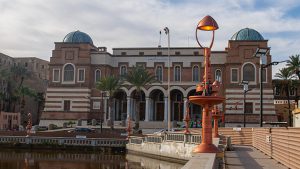
Although this American intervention generally reflects the broader geopolitical dimensions of the crisis, it also presents a political scene in western Libya that conveys a state of dependence on American interests in the first place and reveals the nature of Tripoli’s reliance on American influence rather than referring to the legitimacy of laws. As for the United States, it considers Libyan financial institutions, especially the Central Bank, to be more than just local entities, but rather deeply linked to its network of interests, and it considers Al-Kabir an important ally in maintaining its ability to influence the Libyan financial system, and any disruption of the Central Bank’s operations could have wide-ranging repercussions for it, not only on Libya but also on American influence there.
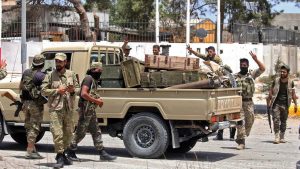
The Role of Armed Groups and the Risk of Escalation
The great friend of Norland conveyed the threats surrounding him through the use of armed groups to remove him from his position, and this issue adds an additional complexity to the current scene in western Libya, where the various Libyan militias, which allied with various political factions, played a decisive role in the struggles for power in Tripoli, and the use of force to achieve political goals is not new, but the arrival of the Dbeibeh government to threaten to use weapons raises two indicators:
- The first is that the issue of threatening armed groups to overthrow the “Al-Kabeer” ultimately means that the conflict has reached the point of “no return”, and it is unlikely that the Dbeibeh government will resort to this without at least informing Norland, as the American position here raises many questions, does the United States want to play on the balance of conflicts in western Libya?
- The second indicator is related to Norland’s statement about this crisis, as it is not a reassurance to the governor of the center, but rather a confirmation that the United States is concerned with any change or conflict in western Libya, and that it will ultimately use the current conflict to find a path that primarily serves its interests.
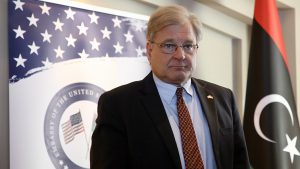
The Dbeibeh government’s reliance on militias to exert pressure on Al-Kabir is a strategy of waving force that has been used before, and it conveys messages that express the subordination of institutions to the influence of individuals and not to the legitimacy approved by Libyan society. The possibilities that threaten the “big friend” are a marginal matter compared to what the Tripoli government wants through its threats to use armed groups, as the goal in the end is to terrorize everyone, not to frighten the bank governor.
The Future of Financial Stability in Libya
Among the existing possibilities today is that Dbeibeh and his allies will succeed in removing Al-Kabir, which will lead to a redistribution of power within Libyan financial institutions, and this will bring a state of instability to the Libyan economy, as the role of the Central Bank as a guardian of Libya’s wealth is crucial, and any disruption in its operations will exacerbate the already difficult economic situation. However, if Al-Kabir manages to retain his position, this will represent a major defeat for Dbeibeh and weaken the position of his government, both domestically and internationally, especially after the consensus in the Libyan Parliament and the vote to end the term of the Dbeibeh government and consider Osama Hamad’s government as legitimate. Also, Al-Kabir’s remaining in his position encourages other institutions and individuals who oppose the Tripoli government to confront Dbeibeh; but for the United States, both possibilities are an image of the maneuvers being carried out by the conflicting parties in western Libya, and in the end, none of the results will change Washington’s existing interests, because it is ultimately able to find agents for it permanently.
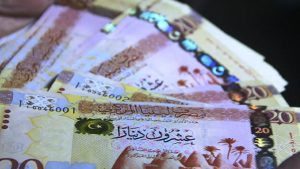
The attempt to oust Al-Siddiq Al-Kabir from the position of Governor of the Central Bank of Libya is a microcosm of the broader power struggle that has swept Libya since 2011. It highlights the ongoing struggle for control of the country’s resources, which remains one of the main drivers of the conflict, and is largely driven by international actors, especially the United States. Libya’s domestic politics are increasingly influenced by foreign geopolitical interests, and the fate of Al-Kabir and the Central Bank will remain a recurring scene in western Libya amid a political environment that derives its legitimacy primarily from Western influence.
Written By Mazen Bilal
The Bodies of 22 Migrants Were Recovered Off The Tunisian Coast
